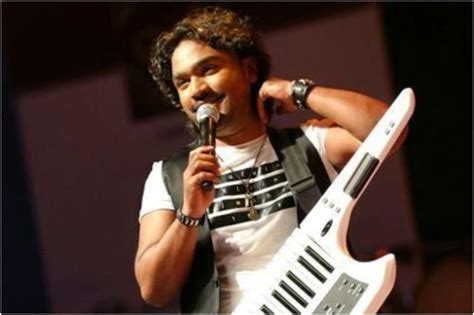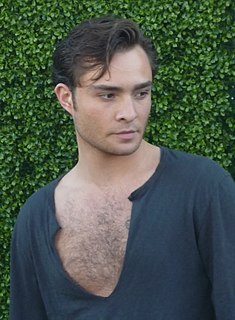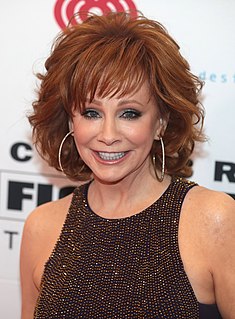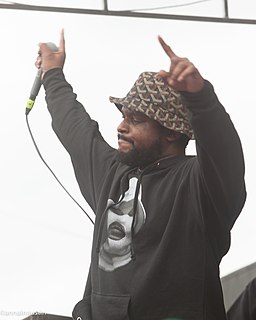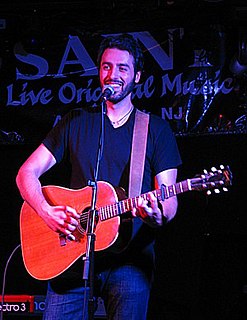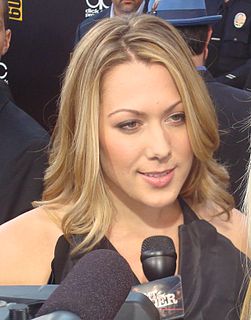A Quote by Arjun Janya
When scoring music, the idea is to ensure that your song makes it to the playlist on your audiences' music player and stands out from the multitude of songs released every day.
Related Quotes
Any young, aspiring musicians out there, if music is what you want to do, if music is what you love and your passion. It doesn't take a fragrance, it's not about the tabloids, it's about you putting in the work, practicing every day, practicing your vocals, practicing your instrument, practicing songwriting. Hopefully one day you write the song the whole world wants to get down to. I promise you, if you go out there and sing and you put your heart and soul into it and you follow your dream, one day you're going to be sitting next to Ellen DeGeneres talking about how you broke records and rocked the Super Bowl.
I always listen to music when I write! I basically make a playlist for every essay; sometimes it's just one song, or three songs, over and over and over. I sort of find the emotional pitch of the piece, and then match music to it, and then the music becomes a shortcut to the feeling, so I can enter it and work anywhere: on planes, cafes, at work, the train.
You might pick up some influences from another type of music that you wouldn't normally think of, but, you know, maybe as a guitar player, it will come out in your improvisational style, maybe as a song writer it might come out in your note choices, or in your melodic choices, and it just helps to making your music that much more original and unique.
You can learn to write. But what you write is something that depends on your taste and on your vision or whatever. Also, of course, the music I listened to inspired my idea of music. When people ask me "Where's your inspiration? Where does it come from?" I have no idea. Music is about music. Not about life and love.
If all music did was bring the past alive, that would be fine. You can hide away in music and let it recapture memories of things that used to be.
But music is greedy and it wants more of your heart than that. It demands the future, your future. Music wants the rest of your life. So you can't rest easy.
At any moment, a song can come out of nowhere to shake you up, jump-start your emotions, ruin your life.
That's what is so great about being able to record a 13-song album. You can do a very eclectic group of songs. You do have some almost pop songs in there, but you do have your traditional country, story songs. You have your ballads, your happy songs, your sad songs, your love songs, and your feisty songs.
"St. Lucia We Love" is actually a song produced by Stratosphere music (also St. Lucian). The CEO of Stratosphere music approached me and wanted me to produce a music video for this song which was already a hit in my country. I felt privileged to have been chosen to do such a video. So every time I went out to shoot a scene from the video, I would get a still shot from the scene to tease the public. The photo of the amazona versicolor is is an actual scene from the video which was released on St. Lucia's Independence day (22nd February, 2013).
I released that I could crank out a song if I practiced it a lot. If I am in the practice of writing songs everyday or every other day, getting ideas and following through with them, and not just saying "I've got this idea, but I will get to it at some point." If I actually sit down and not be lazy, and follow through with it then you just get in the practice of doing things. It feels very productive, and then it gets a lot easier, because you are working the muscle in your brain. The "song-writing muscle" so to speak.
Music and time have such an interesting relationship. Music makes time fall away like almost nothing else. You hear a song from another moment of your life and it really is like you're still there. That's why the music of our youth ends up being particularly powerful. The coming of age music that you grab a hold of as the symbol or the expression of your independence and hopes for the future and anger and rebellion or whatever it is you're feeling is so powerful for the rest of your life when you hear it.
Big band music, to me, it really has three key elements. First is the lyrics are really sweet, and they're just really family-friendly. The second thing is the music is jazz music, so the music is complicated enough to hold your attention for 5 or 6 million plays. That makes the songs interesting. The last part is the fact that it's danceable.
